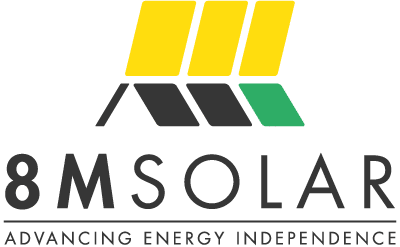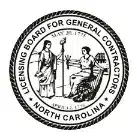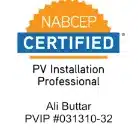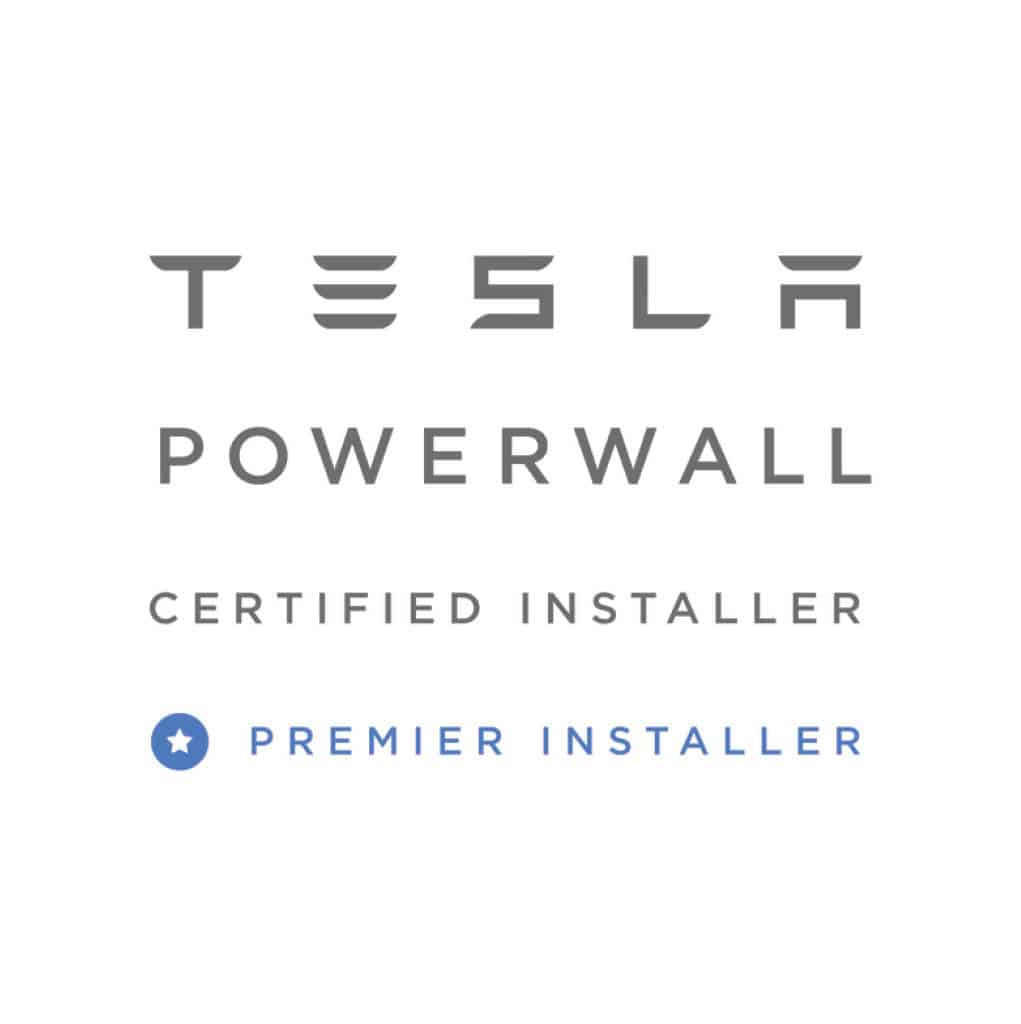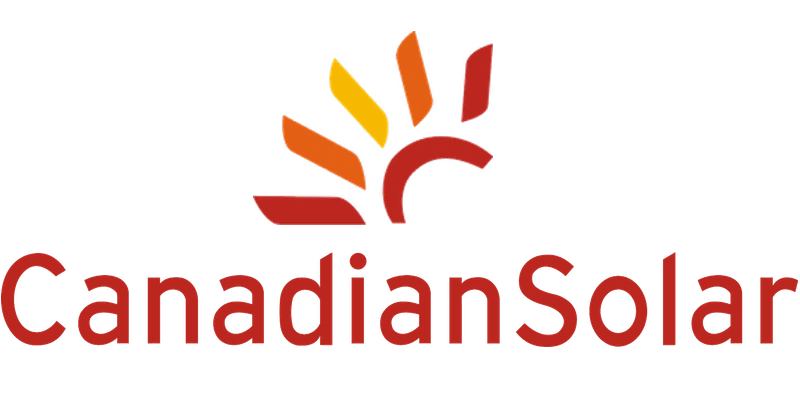
Not all solar panels are created equal—and when it comes to finding the perfect balance between performance, reliability, and cost, Canadian Solar rises to the top. Whether you’re just starting your solar journey or narrowing down the best options for your home, chances are you’ll come across the name Canadian Solar. There’s a reason for that. As one of the largest and most respected solar manufacturers in the world, Canadian Solar has earned a reputation for producing panels that deliver solid power output, dependable long-term performance, and real value for homeowners.
In fact, Canadian Solar panels are our #1 recommended option for residential installations—and it’s not just about brand recognition. These panels are built to perform in a wide range of conditions, come with industry-leading warranties, and offer a level of quality that rivals more expensive brands without the inflated price tag. In a crowded solar marketplace, Canadian Solar stands out as a smart, balanced choice for homeowners who want peace of mind and a solid return on their investment.
Table of Contents
- About Canadian Solar
- Why Manufacturing Capacity Matters for Your Investment
- Made in the USA: Canadian Solar’s Texas Advantage
- Our Premium Offering: Canadian Solar TOPHiKu6
- Understanding Canadian Solar’s Panel Lineup
- Industry-Leading Warranty Protection
- Performance Advantages of Canadian Solar Panels
- Pricing and Value Proposition
- How Canadian Solar Compares to Competitors
- Why 8MSolar Recommends Canadian Solar
- Let 8MSolar Help You Make the Right Choice
About Canadian Solar
Established as one of the world’s top five solar module manufacturers, Canadian Solar has built a production capacity of approximately 31 GW by the end of 2022. This massive scale makes them the clear leader compared to other major manufacturers—QCells produces about 12 GW annually, while REC and Silfab manufacture only about 2 GW and 1.3 GW respectively.
While their main corporate headquarters is based in Guelph, Ontario, Canadian Solar has expanded their manufacturing footprint across the globe. The company operates a 500 MW manufacturing plant in Canada, but has larger operations in China, Indonesia, Vietnam, Brazil, and most importantly for our customers—a state-of-the-art facility in Texas, USA.
Founded in 2001 by Dr. Shawn Qu, Canadian Solar brings over two decades of industry experience to every panel they produce. This longevity is impressive in an industry where many manufacturers have come and gone. Their vertical integration means they control quality at every stage—from producing silicon ingots and wafers to crafting the solar cells and assembling the finished panels.
Why Manufacturing Capacity Matters for Your Investment
When investing in solar panels with 25-30 year warranties, the manufacturer’s long-term viability becomes vitally important. Many smaller manufacturers offer extended warranties as a marketing tactic to break into the market, but lack the financial stability to honor those commitments over multiple decades.
The solar industry has witnessed many examples of quality manufacturers who are no longer producing panels, including well-known names like LG, SunPower, and Solaria. When these companies exit the market, their warranty promises become worthless to consumers who invested thousands in their products.
Canadian Solar’s massive 31 GW annual production capacity speaks volumes about their stability and market position. This scale provides the financial foundation necessary to:
- Maintain profitability through market fluctuations
- Continue research and development for future innovations
- Honor warranty commitments for decades to come
- Support a global service infrastructure for customers
By choosing Canadian Solar panels, you’re getting top-quality panels and securing peace of mind that your warranty will be honored throughout your system’s lifespan.
Made in the USA: Canadian Solar’s Texas Advantage
While Canadian Solar operates globally, we’re excited about their American manufacturing capabilities. The panels we offer are proudly made at Canadian Solar’s cutting-edge Texas facility, providing several advantages for our customers:
- Quality Control: Panels manufactured under strict American quality standards
- Reduced Carbon Footprint: Shorter shipping distances mean lower transportation emissions
- American Jobs: Supporting domestic manufacturing and employment
- Supply Chain Security: Less vulnerability to international shipping disruptions
- Qualification for Additional Incentives: May qualify for special incentives for American-made products
In late 2022, Canadian Solar announced a major expansion of their U.S. manufacturing footprint. This commitment to American production demonstrates their long-term investment in the U.S. market and creates a stable supply of high-quality panels for our customers.
Our Premium Offering: Canadian Solar TOPHiKu6
8MSolar is proud to offer the Canadian Solar CS6.1-54TM 450W/455W (TOPHiKu6) as our flagship panel. This 2025 model represents the pinnacle of Canadian Solar’s technological innovation and manufacturing expertise.
Key Specifications:
- Power Output: 450-460 watts per panel
- Efficiency: Impressive 22% conversion efficiency
- Warranty: 30-year power output warranty and 25-year product warranty
- Aesthetics: Sleek all-black design that enhances your home’s appearance
- Origin: Made in USA (Texas facility)
The TOPHiKu6 series builds upon Canadian Solar’s proven HiKu platform, with improvements in efficiency, power output, and warranty coverage. These panels perform exceptionally even in challenging conditions like partial shading or high temperatures, making them ideal for a wide range of installation scenarios.
Understanding Canadian Solar’s Panel Lineup
Canadian Solar offers a large range of panel options designed to meet different needs and preferences. Their two main residential series—HiKu and HiDM—provide homeowners with options balancing performance and cost-effectiveness.
HiKu Series: Power and Efficiency
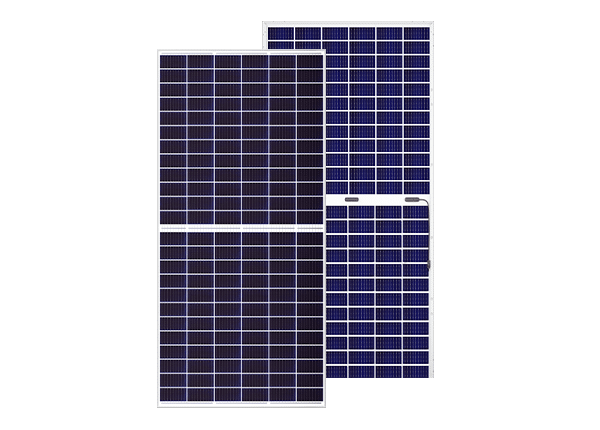
The HiKu series is Canadian Solar’s mainstream offering, featuring advanced technology that delivers outstanding performance:
- Cell Technology: Most models utilize half-cut monocrystalline PERC solar cells, though some budget-friendly variants feature polycrystalline cells
- Efficiency: Up to 22% with the latest TOPHiKu6 models
- Temperature Performance: Superior temperature coefficient makes these panels ideal for warmer regions
- Space Efficiency: Perfect for homes with limited roof space due to high power output per square foot
The latest HiKu6 models (including our TOPHiKu6 offering) show an advancement over previous generations, with higher efficiency, improved low-light performance, and enhanced durability.
All-Black HiKu: Beauty Meets Performance
For homeowners concerned about aesthetics, the All-Black HiKu variant (like our TOPHiKu6) offers a sleek, uniform appearance that complements modern home designs. The all-black design eliminates the visual contrast usually seen in solar panels, resulting in a more integrated look on your roof.
While some all-black designs on the market sacrifice performance for appearance, Canadian Solar’s engineering guarantees minimal efficiency loss while maintaining the aesthetic appeal that many homeowners prefer.
HiDM Series: Value and Reliability
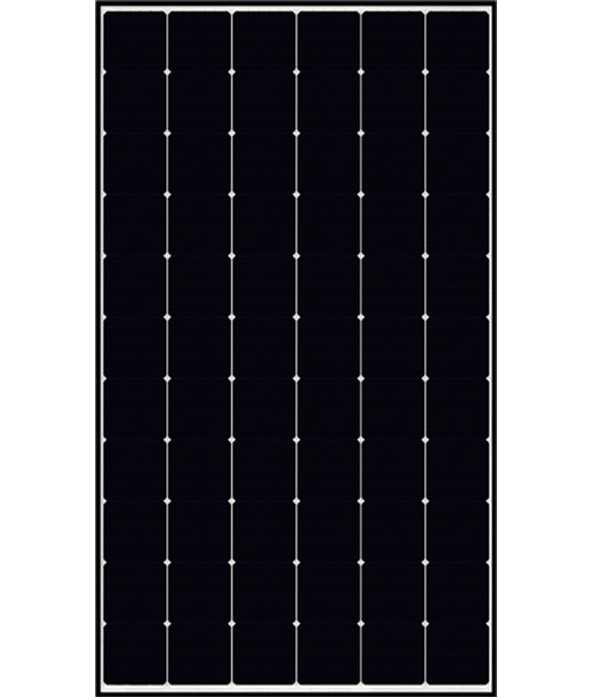
For more budget-conscious applications, Canadian Solar’s HiDM series offers an excellent balance of performance and affordability:
- Shingled Cell Design: Innovative cell arrangement eliminates gaps between cells
- Space Efficiency: Compact design delivers higher wattage per square meter
- Cost-Effectiveness: More affordable price point per watt compared to premium options
- Solid Warranty: 15-year product warranty and 25-year performance warranty
While the HiDM series provides excellent value, for most of our customers, we recommend the premium TOPHiKu6 for its superior performance, longer warranties, and better long-term value.
Industry-Leading Warranty Protection
The warranty coverage on your solar panels is an important consideration, as it protects your investment for decades. Canadian Solar’s warranty offerings are among the best in the industry:
TOPHiKu6 Warranty Details:
- 30-Year Power Output Warranty: Guarantees the panels will continue producing at least 87.4% of their rated power after 30 years
- 25-Year Product Warranty: Covers any defects in materials or workmanship for a quarter-century
- Linear Performance Guarantee: Ensures predictable, gradual decline rather than sudden drops in performance
What makes these warranties particularly valuable is that they’re backed by one of the largest, most financially stable solar manufacturers in the world. Canadian Solar’s massive production capacity of 31 GW annually and consistent profitability give us confidence that they’ll be around to honor these warranties for their full duration.
This stands in stark contrast to smaller manufacturers who may offer similar warranty terms but lack the longevity to fulfill them. The solar industry has seen numerous manufacturers exit the market, leaving customers with worthless warranty documents.

Performance Advantages of Canadian Solar Panels
Beyond their impressive specifications, Canadian Solar panels offer several real-world performance advantages that make them our top recommendation:
1. Excellent Low-Light Performance
Canadian Solar’s advanced cell technology allows their panels to generate power even in less-than-ideal lighting conditions, maximizing energy production throughout the day.
2. Superior Temperature Coefficient
In hot climates, many solar panels lose efficiency as their temperature rises. Canadian Solar’s panels maintain higher efficiency in high-heat environments, making them well-suited for warmer regions.
3. Enhanced Durability
Designed to withstand harsh environmental conditions, these panels have undergone rigorous testing for wind loads, snow loads, and hail impact. Their strong construction allows for decades of reliable performance.
4. Uniform Cell Technology
Canadian Solar’s manufacturing process creates consistent performance across each cell in the panel, eliminating hot spots and ensuring maximum power output throughout the panel’s lifespan.
Pricing and Value Proposition
Canadian Solar offers an excellent balance of quality and affordability. While pricing varies based on system size, roof complexity, and local installation factors, a typical 6kW residential system using Canadian Solar modules costs between $17,000 and $20,000 before incentives.
When considering this investment, it’s important to evaluate the total value over the system’s 30+ year lifespan rather than focusing solely on initial cost. Canadian Solar panels deliver:
- Higher Energy Production: More kilowatt-hours generated per year means greater savings on your electric bills
- Slower Degradation: Better performance retained over decades of operation
- Longer Warranties: More years of guaranteed performance and protection
- Manufacturer Stability: Assurance that warranty claims will be honored if needed
- American Manufacturing: Quality control and reduced environmental impact
When factoring in available incentives like the federal solar tax credit, state rebates, and potential local incentives, the effective cost of your system can be significantly reduced, further enhancing the value proposition.
How Canadian Solar Compares to Competitors
Canadian Solar consistently ranks among the top manufacturers in independent testing and industry assessments. Here’s how they compare to other leading brands:
While several manufacturers offer comparable efficiency and warranty terms, Canadian Solar’s massive production capacity of 31 GW annually gives them an advantage in terms of financial stability and long-term viability. This scale matters tremendously when considering warranty coverage that extends 25-30 years into the future. When manufacturers discontinue their solar division, warranties often become difficult or impossible to claim, leaving customers without the protection they paid for.
Why 8MSolar Recommends Canadian Solar
As solar experts with over two decades of experience in residential and commercial applications, we’ve installed and monitored the performance of virtually every major panel brand on the market. Our recommendation of Canadian Solar as our #1 option is based on several factors:
- Proven Performance: Our long-term monitoring shows consistent, reliable energy production
- Manufacturing Scale: Their 31 GW annual production capacity ensures long-term stability
- American Manufacturing: Panels made in their Texas facility meet the highest quality standards
- Comprehensive Warranties: Industry-leading 30-year power and 25-year product warranties
- Value Proposition: Excellent balance of high performance and reasonable pricing
- Aesthetic Appeal: Sleek all-black design that homeowners prefer
Our commitment is to provide solar solutions that will perform reliably for decades while maximizing your return on investment. After carefully evaluating all available options, we’ve determined that Canadian Solar panels offer the best combination of quality, performance, reliability, and value for our customers.
Let 8MSolar Help You Make the Right Choice
Deciding on the right solar solution for your home involves many factors beyond just selecting a panel manufacturer. At 8MSolar, our team brings over two decades of solar experience to guide you through every step of the process:
- Custom System Design: We’ll assess your energy needs, roof characteristics, and aesthetic preferences to design the optimal system
- Financial Analysis: Clear explanation of costs, savings, incentives, and payback period
- Quality Installation: Expert installation by our experienced, certified team
- Monitoring Setup: User-friendly monitoring to track your system’s performance
- Ongoing Support: Responsive service for the life of your system
Our recommendation of Canadian Solar panels reflects our commitment to providing only the highest quality, most reliable solar solutions. We’re confident these panels will deliver exceptional performance for decades to come, backed by a manufacturer with the scale and stability to honor their industry-leading warranties.
Contact 8MSolar today to discover how Canadian Solar’s premium panels can transform your home’s energy future while enhancing its value and appearance.
